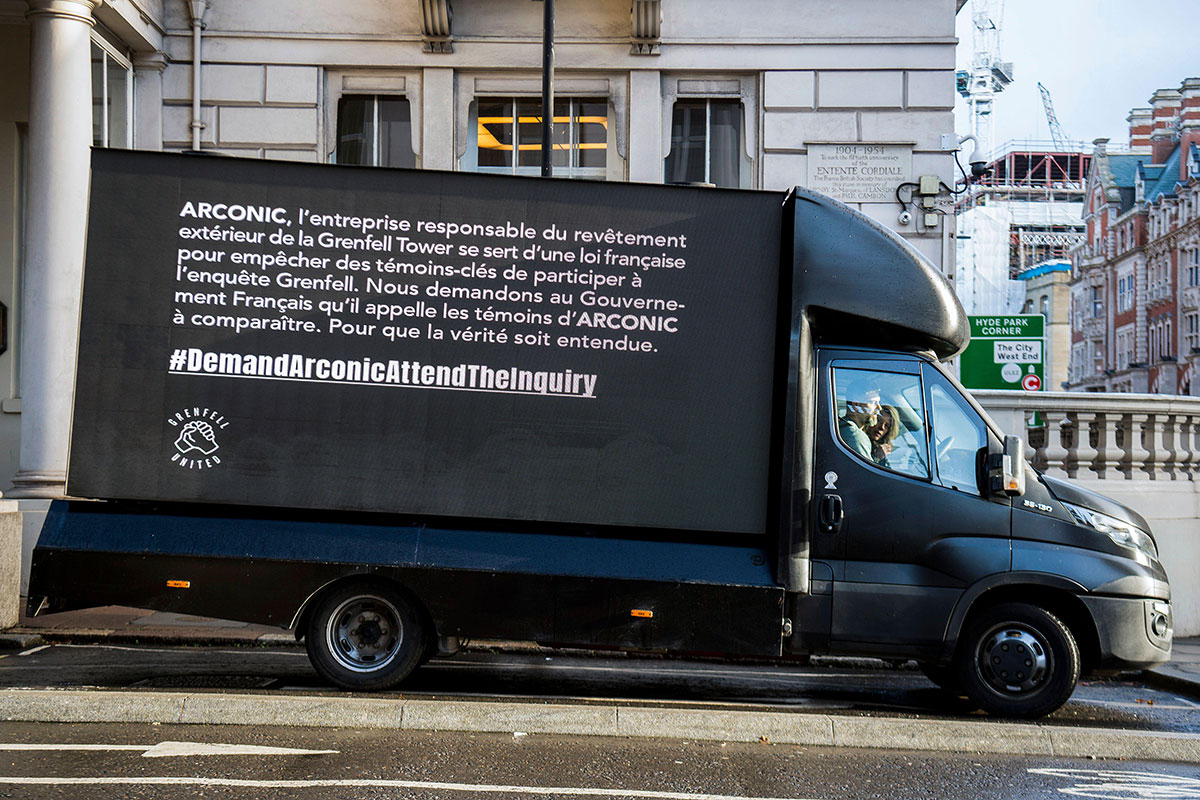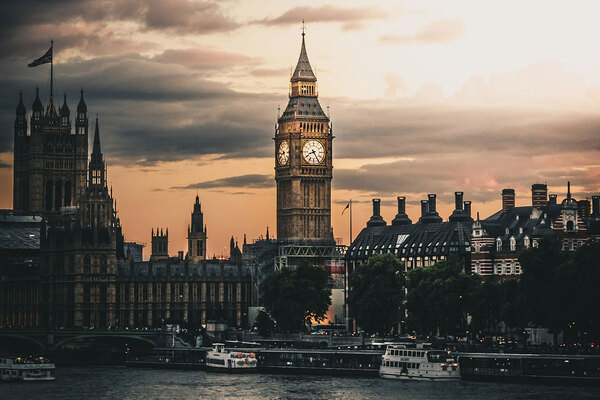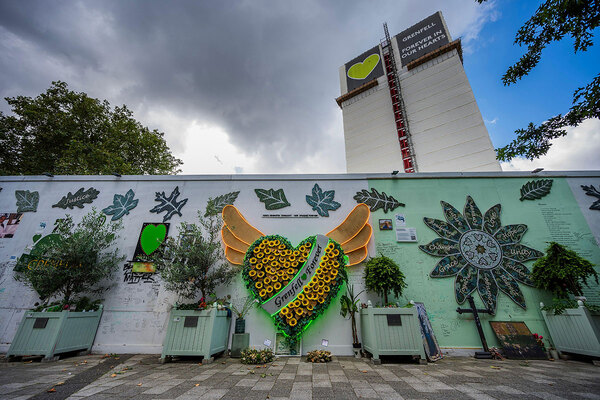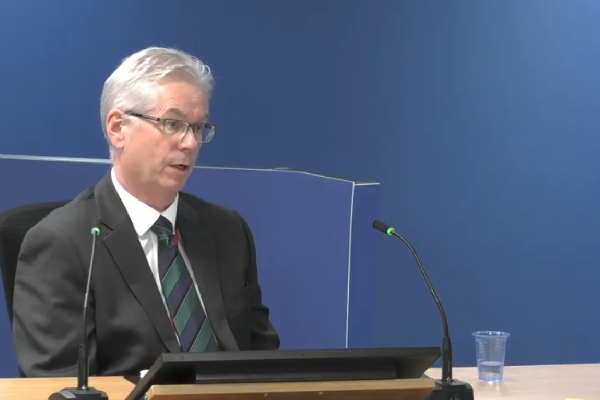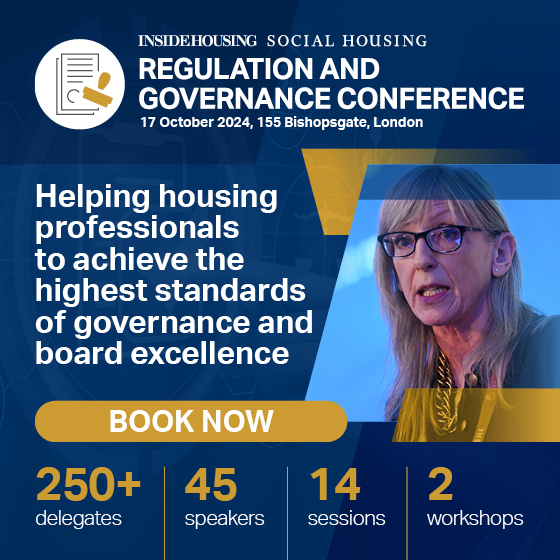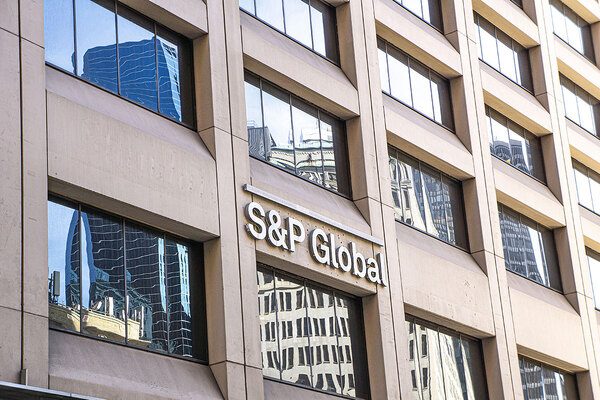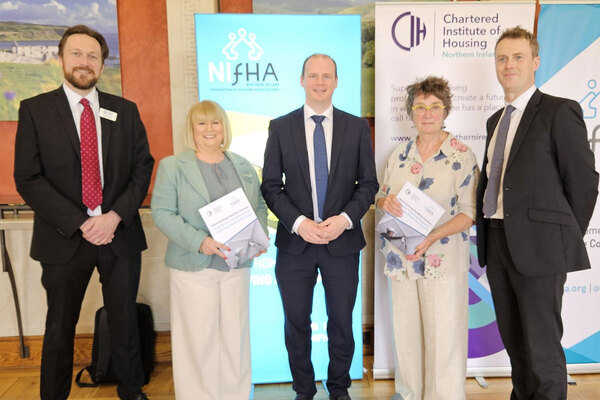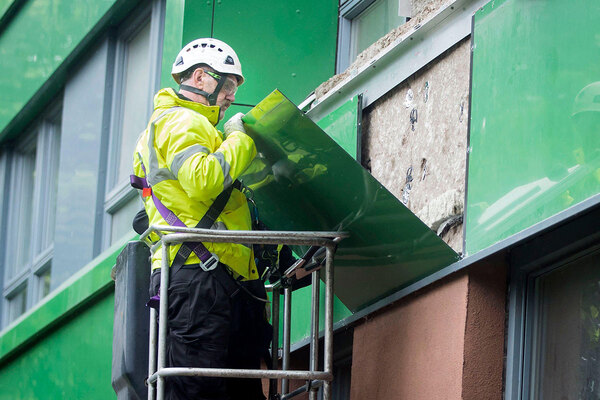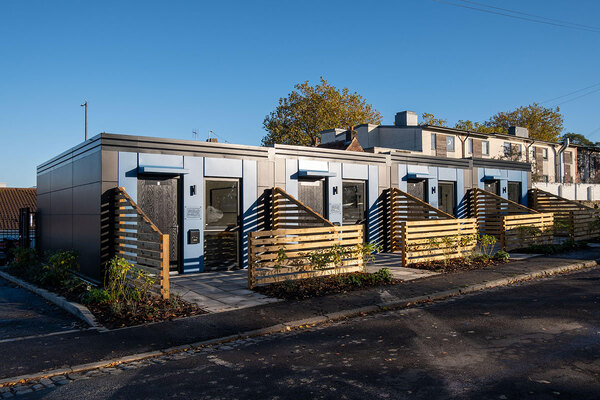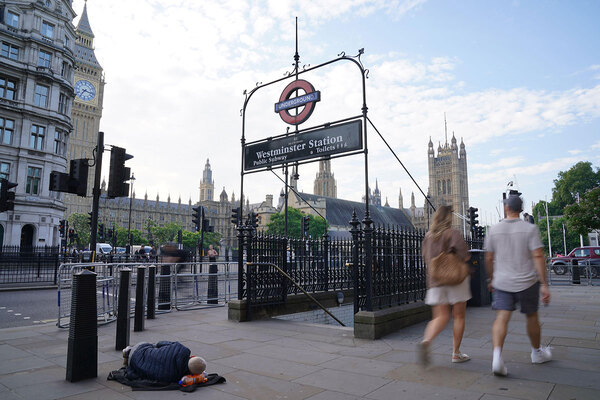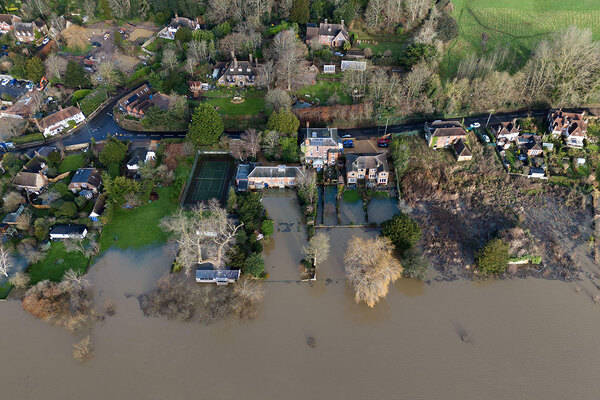‘Systematic dishonesty’ by product manufacturers ‘very significant reason’ for Grenfell’s deadly cladding, inquiry concludes
“Systematic dishonesty” by product manufacturers was a “very significant reason” why Grenfell Tower was clad in such dangerous materials, the inquiry report into the fire has concluded.
In coruscating passages covering the manufacturers of the various cladding products used on the tower, the inquiry said cladding manufacturer Arconic had “deliberately concealed from the market” the “true extent” of the danger of using its polyethylene-cored cladding panels.
Insulation manufacturer Celotex was said to have “embarked on a dishonest scheme to mislead its customers and the wider market” in order to break into the market for insulation on high rises.
Its competitor Kingspan, which made a market-leading product for high-rise buildings and a small amount of the insulation for Grenfell, was said to have “cynically exploited the industry’s lack of detailed knowledge” to “create a false market” for combustible insulation products on high rises.
The damning conclusions come amid a 1,571-page report spread over seven volumes which also attacks the government’s failure to prevent the fire despite being “well aware” of the risks, and the social landlords managing the tower of “serious failure to observe basic responsibilities”.
It added: "One very significant reason why Grenfell Tower came to be clad in combustible materials was systematic dishonesty on the part of those who made and sold the rainscreen cladding panels and insulation products."
The section on the manufacturers also contained heavy criticism of various bodies that certified their products, such as the British Board of Agrément (BBA), a significant player in the construction industry.
It said the “dishonest” strategies of the corporates succeeded “in a large measure due to the incompetence of the BBA… and an ingrained willingness to accommodate customers instead of insisting on high standards”, which had allowed it to become “the victim of dishonest behaviour on the part of unscrupulous manufacturers”.
It also criticised the Building Research Establishment (BRE), the former national building science centre for the British government until it was privatised in 1997, as having “sacrificed rigorous application of principle to its commercial interests”.
“Much of the work carried out by the BRE was marred by unprofessional conduct, inadequate practices, a lack of effective oversight, poor reporting and a lack of scientific rigour,” it said.
The report said Arconic – a huge multinational firm headquartered in the US, but operating in Europe out of an office in Merxheim, France – had “sought to exploit what it perceived to be a weak regulatory regime in the UK, while withholding from the market relevant information about the product’s fire performance”.
The inquiry had previously heard that Arconic ran tests on the Reynobond PE 55 product in 2005, which revealed a devastating fire performance when bent into a “cassette” shape that was to be hung on a building using rails, rather than bolted on.
But it never released this information to the market and instead obtained a certificate from the BBA which implied it met relevant standards in UK guidance in both riveted and cassette configurations, without telling the BBA about the test on the cassette-shaped product.
The inquiry said that Claude Wehrle, Arconic’s technical manager who declined to give evidence, had “deliberately and dishonestly” misled the BBA on this point.
Touching on an instance where a manager at Arconic attended a conference in Oslo, in which he heard important warnings about the performance of the polyethylene-cored cladding in fire, and then summarised this for his seniors, the report said it was “clear” that “by late 2007” Arconic was “aware that there was serious concern” about the safety of the product it sold.
But rather than withdraw it from sale, it “sought to exploit what it perceived to be a weak regulatory regime in the UK” while “withholding” information about the true fire performance.
The report added that “Arconic itself must take responsibility for the use of Reynobond PE 55 on Grenfell Tower” because it knew the sale had been achieved with the help of the BBA certificate, which “it was well aware gave a misleading impression” about the fire performance of the product.
The report also criticised Deborah French, Arconic’s UK sales manager, who was told in February 2014 that the European classification in the BBA document should not be relied on, but continued to use the certificate to win sales, including Grenfell Tower, just two months later.
The report said she was “clearly at fault” and had “wittingly or unwittingly” supported the firm’s “sustained and deliberate strategy” to continue selling Reynobond PE 55 in the UK based on claims she “knew to be false”.
On Kingspan, it said the story of its development and marketing of the K15 insulation product for use on high-rise buildings was one of “deeply entrenched and persistent dishonesty… in pursuit of commercial gain”.
It said that while its product may only have been partially used on Grenfell Tower, the effect of its behaviour had been to “create a spurious market for a [combustible plastic] insulation product suitable for use on high-rise buildings generally” which drew Celotex in as a competitor.
The firm passed a large-scale test on a system containing its product in 2005. It knew this only ever allowed the entire system tested to be used on high rises, but instead marketed its product as suitable for use on high rises in all circumstances. It obtained certificates from the BBA and Local Authority Building Control (LABC) – another private body which purported to represent building control inspectors – to support this “misleading” conclusion.
The report said its strategy was “to go after every job” and that its “false claims” about its product were “not being made in error by rogue junior employees, but with the knowing approval of a senior manager”.
Referring to emails in which Philip Heath, then a technical manager at the firm, said those questioning the suitability of the product could “go fuck themselves”, the report said they “expose a casual disregard for public safety at a senior level” and “a keen awareness that it needed to find a way out of the situation it had created through its own mendacity”.
Celotex sought to catch up with Kingspan’s dominance of the high-rise market in the early 2010s, and embarked on a system of testing to try and replicate its strategy.
When an initial test failed, it reinforced the test rig with fire resisting boards, which it never declared in its marketing and which were not referred to in the official test report. The report said this amounted to “rigging” the test and marketing it “in a dishonest way”.
This test was carried out at the BRE’s facility, but Phil Clark, its burn hall manager, had insisted under cross-examination that he knew nothing of Celotex’s plan.
This was rejected by today’s report, which found that he would have known how the test was being manipulated, and said that having carefully considered the evidence, Celotex could “have acted as it did only with the knowledge of Mr Clark”.
It also raised the possibility that he had destroyed crucial evidence: the delivery note of the fire resisting boards. The report said it was “too much of a coincidence” to say that it had been lost and that it “could have been removed or destroyed deliberately” and that “no one at BRE other than Mr Clark was involved in the Celotex tests in a way that would provide a motive for doing that”.
It concluded that he “did not know where to draw the line and crossed it on various occasions”. It blamed the BRE’s more senior management for allowing the organisation to “become much closer to its clients” and having “no independent supervision to make sure conflicts of interest were properly managed”.
“Scientific rigour and independence were sacrificed in favour of financial sustainability,” it said.
In its overall conclusions, the report said there had been a “lack of co-ordination” between various parts of the system designed to regulate the built environment, given the different bodies and conflicts of interests involved.
“That is a task only government can undertake,” it said.
Responses
A spokesperson for Arconic Architectural Products (AAP) said: “The company respects the inquiry process. AAP cooperated fully with the work of the inquiry and will continue to engage with further legal processes. “Together with other parties, AAP has made financial contributions to settlements for those affected, as well as to the restorative justice fund.
“Throughout the inquiry, AAP has maintained a number of points:
- AAP sold sheets of aluminium composite material as specified in the design process. This product was safe to use as a building material, and legal to sell in the UK, as well as the more than 30 other countries in which AAP customers purchased the product. We reject any claim that AAP sold an unsafe product.
- AAP regularly conducted tests of its materials using third-party testing bodies. Reports on these results were all publicly available, and AAP made these reports available to its customers.
- AAP did not conceal information from or mislead any certification body, customer, or the public.”
A spokesperson for Kingspan said: “Today is another extremely difficult day for the relatives and survivors of the Grenfell Tower fire and we extend our deepest sympathies to those impacted by the tragedy.
“We welcome the publication of today’s report, which is crucial to a public understanding of what went wrong and why.
“It explains clearly and unambiguously that the type of insulation (whether combustible or non-combustible) was immaterial, and that the principal reason for the fire spread was the PE ACM [polyethylene aluminium composite material] cladding, which was not made by Kingspan.
“Kingspan has long acknowledged the wholly unacceptable historical failings that occurred in part of our UK insulation business. These were in no way reflective of how we conduct ourselves as a group, then or now. While deeply regrettable, they were not found to be causative of the tragedy.
“Kingspan has already emphatically addressed these issues, including the implementation of extensive and externally verified measures to ensure our conduct and compliance standards are world leading.
“We remain committed to playing a leading role in providing safe and sustainable building solutions, including continuing to work with government and industry partners.”
A spokesperson for Celotex said: “The publication of the Grenfell Tower Inquiry report marks the conclusion of the inquiry’s work and we are considering its contents with care.
“Our business’ response to what happened started immediately after the fire in June 2017.
“We conducted our own review to interrogate the circumstances in which the RS5000 product had been tested, launched and marketed.
“This review was a significant and thorough undertaking, and the results of that work were disclosed promptly and proactively to relevant stakeholders, including the Grenfell Tower Inquiry.
“Independent testing commissioned following the review demonstrated that the cladding system described in the Celotex RS5000 marketing literature met the relevant safety criteria.
“That system was substantially different to that used at Grenfell Tower. Decisions about design, construction and the selection of materials for the Tower were made by construction industry professionals.
“Since the fire, we reviewed and improved process controls, quality management and the approach to marketing within the Celotex business to meet industry best practice.
“Celotex Limited continues to cooperate fully with all official investigations into the Grenfell Tower fire.
“We reiterate our sympathies to everyone affected by the fire.”
All Inside Housing’s breaking stories on the Grenfell Inquiry Phase 2 report
KCTMO responsible for ‘chronic and systemic’ safety failings before Grenfell fire, inquiry concludes
Grenfell’s social housing provider was responsible for “chronic and systemic failings” in fire safety management, as well as a “toxic” relationship with the tower’s residents, who came to regard it as an “uncaring and bullying overlord that belittled and marginalised them”
Failed by ‘incompetence, calculated dishonesty, and greed’: reactions to Grenfell Tower Inquiry report
Inside Housing is highlighting responses to the second and final Grenfell Tower Inquiry report
The Grenfell Tower Inquiry report may not have made recommendations to social landlords, but it is still a major call for change
Today’s Grenfell Tower Inquiry report surprisingly stopped short of making recommendations for social housing providers. But it did ask them to read it and reflect. This is homework which should be taken seriously, writes Peter Apps
Grenfell Inquiry report elects not to make specific recommendations for social housing providers
The Grenfell Tower Inquiry has made no fresh recommendations for social landlords in its long-awaited Phase 2 report, saying recent legal changes are sufficient to drive reform
‘Complacent’ government ‘well aware’ of cladding risks before Grenfell fire but ‘failed to act’
A “poorly run”, “complacent” and “defensive” government department “failed to act on what it knew” about dangerous cladding in the years before Grenfell, amid an enthusiasm for deregulation which “dominated” its thinking
‘Systematic dishonesty’ by product manufacturers ‘very significant reason’ for Grenfell’s deadly cladding, inquiry concludes
“Systematic dishonesty” by product manufacturers was a “very significant reason” why Grenfell Tower was clad in such dangerous materials, the inquiry report into the fire has concluded
Social landlords must be ‘held to account’ for safety of homes, prime minister says
Sir Keir Starmer has pledged to make sure social landlords are “held to account” for the safety of the homes they provide, in a statement following the publication of the Grenfell Tower Inquiry’s second and final report
Sign up for our fire safety newsletter
Already have an account? Click here to manage your newsletters
Sign up to the Regulation and Governance Conference 2024
At a time of major regulatory change, the Regulation and Governance Conference is designed to give board members and governance and risk professionals the insight they need to plan and prioritise effectively.
Join more than 250 delegates and 45 speakers to confidently navigate the change ahead and ensure you have the right governance structures and assurance frameworks to keep tenants safe and run a viable business.
